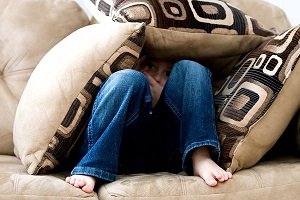How to Get Rid of Major Depression
TweetMajor depression occurs in up to 17% of adults, affecting all racial, ethnic, and socioeconomic groups. It affects both sexes, but is more common in women.
Major Depression or Clinical Depression is the most severe category of depression. Major depression is a type of mood disorder. A mood is an emotion or a feeling. Moods affect our behavior (how we act). Your mood also affects how you feel about yourself and life in general. Depression is a sad mood that you cannot control. If you feel sad for at least 2 weeks, you may be depressed.
Defining the boundaries of depressive episodes in community surveys presents difficulties. However, if the DSM-IV criteria for major depression are applied, recent survey suggest that:
- the 6-month prevalence of major depression in the community is between 2 and 5%;
- the lifetime rates in different studies show much variability (from 4 to 30%). The true figure probably lies between 10 and 20%;
- the mean age of onset is about 27 years;
- rates of major depression are about twice as great in women as men, across different cultures;
- there may be increased rates of depression in people born since 1945;
- rates of depression are higher in the unemployed and divorced;
- major depression has high co-morbidity with other disorders, particularly anxiety disorders and substance misuse.
Major depression is more serious than typical depression. Most people diagnosed with depression get help from a therapist and may take antidepressant drugs, but they do not need to go to a hospital. They can stay at home and keep up with their jobs, other responsibilities, and relationships.
What are the Symptoms of Major Depression?
In a major depression, more of the symptoms of depression are present, and they are usually more intense or severe. However, each individual may experience symptoms differently. Symptoms may include:
- recurrent thoughts of death, recurrent suicidal ideation without a specific plan, or a suicide attempt or a specific plan for committing suicide.
- loss of interest or pleasure in things that used to be fun
- diminished ability to think or concentrate, or indecisiveness, nearly every day
- irritability, hostility, aggression
- a decrease in the ability to make decisions
- feeling hopeless or helpless;
- Feeling restless or unable to sit still.
- loss of energy
- Withdrawal from family members/peers/co-workers.
- changes in appetite or weight
- drug or alcohol abuse
- trouble sleep or sleeping too much
- Blaming yourself for things going wrong.
- Crying a lot.
Some people appear to develop the symptoms of a major depression without any obvious life crisis causing it. Other individuals have had less severe symptoms of depression for a long time (such as Dysthymic disorder), and a life crisis results in increased symptom intensity.
What are the Causes of Major Depression?
Depression is a combination of biological, genetic and psychological factors. Major depression is caused by imbalance of certain neurotransmitters (chemical messengers) in the brain. The following are the most common causes for major depression:
- unemployment
- family history of depression
- death of loved one
- financial difficulties
- poor self-esteem,
- a pessimistic view of oneself and the world.
- other chronic illnesses
- loss of relationship
What is the Treatment for Major Depression?
Basic types of treatment for depression include antidepressant medications, psychotherapy, or electroconvulsive therapy (ECT).
- antidepressant medications- Antidepressant medicines are almost always prescribed, effective especially when combined with psychotherapy
- psychotherapy- most often cognitive-behavioral and/or interpersonal therapy) for the individual. Cognitive-behavioral focused on the negative thinking and behavioral patterns associated with depression, and teaches the individual to recognize and target the self-defeating behavioral patterns that contribute to their depression.
- electroconvulsive therapy (ECT)- ECT (shock treatments) is an effective treatment for major depression when medicines have not worked, or when medicines cannot be used because of health problems.
Severe major depression is usually quite easy for a medical practitioner or clinical psychologist to recognise. Approaching your psychiatrist or clinical psychologist is what we suggest for the cure of major depression.
You do not need to feel suicidal, and you do not need to have a history of hospitalizations either, although both of these factors are present in some people with major depression.
Interpersonal therapy working through difficult relationships; identifying stressors in the individual and learning how to avoid them.
Care during Major Depression
At first, you may be seen in a clinic or your caregiver's office. You and family members may have meetings with your caregiver. These meetings can help you and family members understand depression. Caregivers will ask you and your family questions about how you feel now. You may also be asked how you have felt in the past. Caregivers will help you talk about your feelings and teach you the best way to care for yourself. Medicine may be used to treat your illness. You may need to go to the hospital for other tests and treatment.
Recurrent Major Depression
Such a disabling episode of depression may occur only once but more commonly occurs several times in a lifetime. This would be a recurrent depression. In general, the treatment is similar, except that treatment usually is over a longer time period for recurrent depression.
Learn about DSM-IV for major depression
Why not join our forums and keep learning many interesting things while having fun with other forum members? Believe us, you'll just love it. |


Sometimes crying or laughing
are the only options left,
and laughing feels better right now.

Current Issue
 Self Help Leaflets Take the help of our self help leaflets or booklets. |
 The DG Magazine All about living with depression |


















